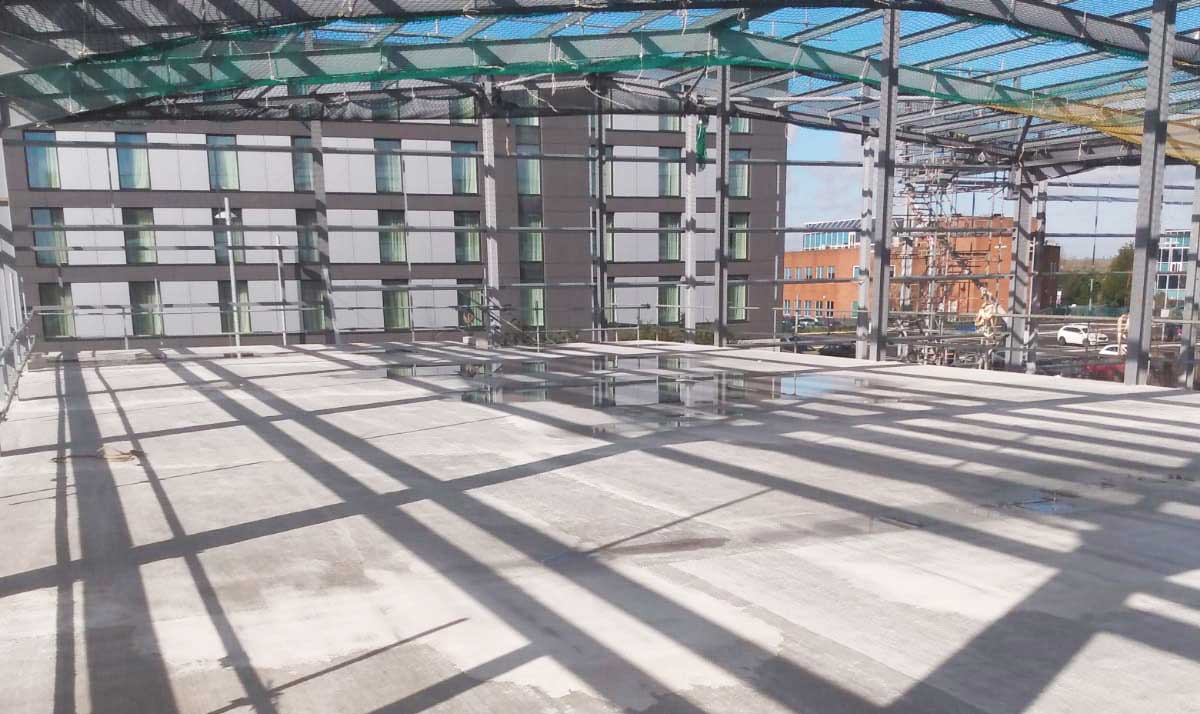Composites: The Secret to Modern, Lasting Construction
Composites: The Secret to Modern, Lasting Construction
Blog Article
Checking Out the Uses and Advantages of Recycled Composites in Modern Industries
The combinations of recycled products with innovative composite innovations provides an encouraging avenue for improving sustainability, durability, and cost-efficiency throughout numerous sectors. As sectors look for innovative solutions to deal with ecological worries and boost operational efficiencies, the consolidation of recycled composites emerges as a compelling choice.
Environmental Benefits of Recycled Composites
The usage of recycled composites in modern markets uses considerable ecological advantages, contributing to the decrease of waste and the preservation of all-natural sources. By incorporating recycled composites into manufacturing procedures, industries can decrease their dependence on virgin products, therefore reducing the amount of waste produced and the energy required for removal and manufacturing. This change towards making use of recycled compounds assists in diverting materials from land fills, reducing the problem on waste administration systems, and reducing greenhouse gas emissions connected with traditional manufacturing practices.
Furthermore, using recycled compounds promotes the preservation of natural deposits such as hardwood, minerals, and water, which are often diminished with the extraction and handling of raw products (composites). By expanding the life expectancy of materials with recycling, markets can help maintain ecosystems and biodiversity by lowering the demand for brand-new resources. Overall, the fostering of recycled composites in modern-day markets plays a vital function in promoting sustainability and minimizing the environmental effect of production processes
Boosted Durability in Item Manufacturing
With an emphasis on durability and robustness, including recycled composites right into product manufacturing processes improves resilience and sustainability. By making use of recycled compounds, manufacturers can develop items that are not only strong but additionally immune to tear and use, making them suitable for long-term usage in numerous industries. The combination of different products in recycled compounds can usually lead to improved stamina and toughness compared to conventional materials, supplying an economical remedy for creating resilient items.
Among the vital benefits of utilizing recycled compounds in product production is the capacity to tailor the product homes to satisfy specific durability needs. By readjusting the structure and production strategies, producers can customize the recycled composites to stand up to extreme environmental problems, hefty tons, or frequent usage without endangering on performance. This versatility in layout and production allows for the creation of extremely long lasting products that keep their integrity over time, reducing the demand for constant replacements and inevitably contributing to a much more sustainable manufacturing process.
Cost-Effectiveness and Economic Benefits
Including recycled composites into item manufacturing not just boosts sturdiness and sustainability yet also uses substantial cost-effectiveness and financial advantages. Using recycled compounds can lead to decreased material expenses as recycled products are frequently much less pricey than virgin products. Additionally, recycling composite materials can reduce garbage disposal expenditures and decrease the need for garbage dump room, adding to overall cost savings for sectors.

Technology and Design Flexibility With Recycled Compounds
Using recycled composites in modern-day markets uses unparalleled possibilities for advancement and design adaptability. By integrating recycled materials into helpful hints composite manufacturing procedures, companies can press the limits of traditional design restraints and check out new opportunities. The adaptability of recycled composites enables the production of complex forms and structures that could not be achievable with standard products.
One of the crucial advantages of recycled composites is their ability to be formed into numerous forms, offering designers the flexibility to experiment with unique forms and sizes. composites. This versatility opens a world of imaginative chances, enabling the advancement of light-weight yet resilient items that fulfill the particular demands of different sectors
Additionally, making use of recycled compounds promotes lasting practices and supports the round economic climate by lowering waste and minimizing the ecological impact of producing procedures. This emphasis on green design options lines up with the growing trend towards sustainability in contemporary industries, making recycled composites a useful resource for innovative and forward-thinking firms.
Applications Across Different Industries
Recycled compounds locate impactful and varied applications throughout a vast array of industries because of their special residential or commercial properties and sustainability benefits. In the vehicle field, these materials are progressively utilized for producing lightweight and resilient components, improving fuel efficiency and lowering carbon exhausts. The aerospace sector gain from recycled compounds in the production of aircraft components, where the materials' strength-to-weight proportion is important for making sure security and performance. In construction, these composites are used for producing strong yet eco-friendly structure products, adding to lasting framework advancement. The renewable resource market utilizes recycled compounds in wind generator blades and photovoltaic panels, harnessing their strength and resistance to extreme ecological conditions. Additionally, the aquatic sector makes use of these products for Full Report making watercraft hulls and components, using improved resilience and deterioration resistance. The versatility and sustainability of recycled compounds make them beneficial across different markets, driving advancement and ecological stewardship. composites.
Verdict
To conclude, the use of recycled compounds in modern-day sectors supplies substantial environmental benefits, improved sturdiness in product manufacturing, cost-effectiveness, and economic advantages. The usage of recycled composites allows for advancement and design flexibility throughout various industries. On the whole, the adoption of recycled composites presents a lasting and sensible remedy for meeting the requirements of the industry while additionally minimizing ecological influence.

One of the key advantages of making use of recycled compounds in product manufacturing is the capacity to customize the material properties to fulfill certain toughness demands. Utilizing recycled compounds can lead to decreased material expenses as recycled products are usually much less costly than virgin materials. The aerospace sector benefits from recycled composites in the manufacturing of aircraft components, where the materials' strength-to-weight ratio is crucial for ensuring safety and efficiency.
Report this page